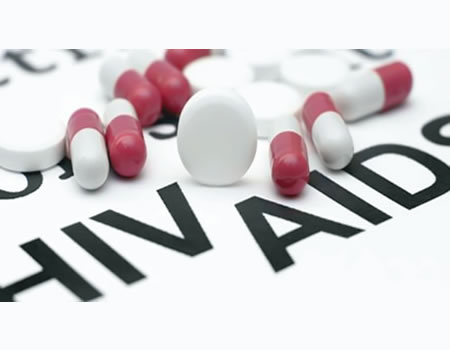AN expert in HIV medicine, Professor Sulaiman Akanmu, has said although there is no cure for HIV yet, the currently available antiviral drugs have renewed hope of ensuring HIV epidemic control and adding at least 33 years to the lifespan of individuals with HIV that take these drugs as prescribed.
He added that the individual’s capacity to infect other people is nearly zero because the virus will be undetectable in the blood of such an individual.
Akanmu, the chair of the National Task Team on antiretroviral therapy in Nigeria, in his lecture entitled “The March Towards Ending HIV Epidemic: The Legacy of the Ibadan Virologist” at the 3rd Professor David Olaleye Memorial lecture in Ibadan, said researchers are working at different approaches to ensure a cure for HIV in the future. It was organised by the David O. Olaleye Endowment Foundation.
He stated that the cure agenda for HIV is centred on developing therapeutic vaccines to help rid the body of this infection and viral eradication technologies that are aimed at uprooting HIV from the archival sites in the body, like some cells of the brain, skin, spleen, lungs, and kidney.
According to him, what has worked thus far to remove HIV from cells that harbour it—the so-called eradication of integrated HIV DNA sequences—is stem cell transplantation.
“And what is going on here is that the HIV-infected person has another disease condition for which he or she requires stem cell transplantation. So what we are now doing is looking for a donor whose cell is naturally HIV-uninfected.
“We know that about 1.5% of Caucasian populations, irrespective of whatever you do, you cannot infect them with HIV. The closest that we have found in Africa happens to be in the Kenyan prostitutes.
“The very first stem cell transplantation that was done was that of Timothy Brown; we call him the Berlin patient. He had acute myeloid leukaemia and was required to have stem cell transplantation. He was cured of his acute myeloid leukaemia only for the researchers to find out that the HIV also disappeared. This actually happened in 2005.
“There are other patients in the world who were cured of their HIV permanently. The other five were actually deliberate. The Berlin experience was just serendipitous. And they were able to explain that it happened because of this. The second one was a London patient that was cured of lymphoblastic lymphoma and also cured of HIV.”
Professor Sulaiman Akanmu, however, declared that there is renewed hope in the effective use of antiviral therapy, not to achieve a cure but to achieve epidemic control of HIV.
“Today, these drugs are much more tolerable with little or no side effects. The dosage schedule is becoming simpler and simpler. Today, between 90 and 95% of the HIV-infected population just swallows one pill a day.
“The trend is that tomorrow the pill will be once a week. And next tomorrow, when some side effect of the constituents of the HIV pill is overcome, it will be one pill in six months. You take a shot of the long-acting HIV injectables, and the next time to take treatment is another one month. But that has been extended to two months. And now, as we speak, the six-month injectable is under trial.
“This is the renewed hope for antiviral therapy to be able to achieve what we call epidemic control. Epidemic control is not equal to HIV cure. HIV cure means that the virus is no longer found in your blood.
“And by ending the epidemic, it means we want to see zero new HIV infection. That means people are taking antiviral therapy; they have achieved the goals of therapy. And therefore, they are no longer infectious to sex partners. It means we will have no new infections.”
Professor Olufemi Bamiro, a former vice chancellor of the University of Ibadan, in the chairman’s speech described Professor David Olaleye as a selfless researcher, mentor, and academician, as well as challenged his colleagues to ensure his pursuit of ending the HIV epidemic is achieved.
